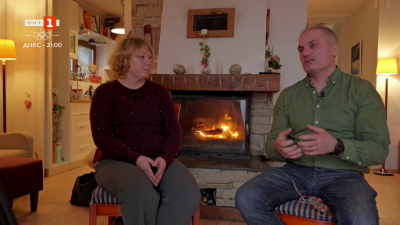What kind of workers and professionals will Bulgarian businesses need in the next 12 months?

Bulgarian businesses will need nearly 262,000 workers and professionals in the next 12 months. This is according to the results of the Labour Needs Survey, which the Employment Agency conducted between May and July, together with the District Employment Committees of the District Development Councils in the 28 districts of the country.
Employers report a need for 261,926 workers and professionals over the next 12 months with skills and knowledge in a variety of occupational areas that will be required for enterprises to operate effectively. This is nearly 9.3% of the currently employed workforce. Compared to the results of the 2023 surveys, there is a slight decrease in the stated workforce needs by 2.6% or about 7,000 fewer workers and professionals. Compared to the 2019 employment record average, demand in 2024 is at 82% of that in 2019.
The survey gathered important information on the attitudes of Bulgarian businesses about the expected competencies and skills of the in-demand workforce. One in four employers ranked personal and social competence as the most crucial factor for business success, followed by language and entrepreneurial competence, with 17% and 12% representation respectively. For 87% of businesses, self-control and discipline are the most necessary skills for staff to have. Employers (85%) ranked teamwork and communication skills second most important.
The survey results also show that 59,219 firms will hire new staff in the next 12 months. Compared to the survey a year ago, the number has increased by 3,919 or 7.1%.
Over the next 12 months, employers will be looking for nearly 153,000 skilled professionals. Compared to the stated need for professionals with a secondary education in 2023, the number of needs that employers state in 2024 has decreased by 5.3%. The most in-demand occupations will be builders, tailors, cooks, operational accountants, construction technicians, and others.
Bulgarian businesses will need another 59,300 professionals with a degree or higher education. Among them, the most in demand will be teachers, nurses, drivers, doctors, mechanical engineers, teachers, pharmacists, etc. Compared to a year earlier, the number of in-demand professionals with higher education or a degree increased by nearly 1,000 or by 1.6%.
The survey shows that 49,764 workers without a specialty will be needed in various sectors of the economy over the next 12 months, also reporting a year-over-year increase in demand of 650 positions or 1.3%.
The share of employers saying they will have difficulty finding the professionals and workers they need is up slightly, from 63.8% on average in 2023 to 66.7% in 2024. The most frequently mentioned reason for problems in securing staff is the lack of sufficient qualifications (education) of candidates - in 43.1% of cases.
The number of businesses that believe they need to make staff redundant is 17,300, up from 12,600 in 2023, an increase of 37.3% of employers forced to downsize in the next 12 months.
The greatest demand for workers and professionals, over the next 12 months, is expected to be in industry, with a total of 68,249 people, or 26.1% of all stated needs. Trade, transportation, accommodation and food services will account for 55,308, or 21.1%, and government, education, health care and social assistance will account for 48,710, or 18.6%.
On-the-job training is the most commonly preferred form of addressing the skills gaps in the workforce demanded by employers, shared by 43.3%.
According to the study, in the medium term, i.e. in the next 3 to 5 years, the number of specialists with higher education will be 226,864. The three most in demand professional fields are Pedagogy, Economics and Social Activities. In the next 3 to 5 years Bulgarian business will also need 255,864 specialists with secondary education. The most needed will be specialists in wholesale and retail trade, construction, marketing and advertising, accounting and taxation, etc.
Sofia-city remains the district where the most workers and specialists are expected to be hired – 47,229, which is 18% of all the needs in the country, followed by Varna - with 28,944 (11.1%) and Plovdiv - with 23,433 (8.9%).
In 17 out of 28 districts, the number of registered unemployed exceeded the number of labour force needs. Among them are Varna, where the excess is almost 5 times, Sofia-city and Burgas - with an excess of 4 times. The districts in which the negative consequences of the lack of sufficient labour force will not be felt are Vidin, Razgrad and Targovishte.
Compared to the results of the survey a year ago, 11 of the districts reported an increase in labour needs compared to the previous year, while 17 - a decrease. The most significant increase in the need for workers and specialists in Sliven district - 2.5 times compared to the stated needs in 2023. This is followed by the districts of Sofia - with 77% growth, Montana - with 43%, Vidin - with 37%, Pleven - with 36%, etc. On the other side are the districts of Gabrovo, Targovishte and Razgrad, where the labour force needs are decreasing by over 70%.
The labour force needs survey is conducted once a year to collect and analyse up-to-date information on the occupations, competences, knowledge and skills of the staff in demand by employers and to plan measures to organise their vocational training.
Get the latest news wherever you are!
Follow us on
Facebook
and
Instagram
Follow BNT’s YouTube channel
You can now also watch us on
TikTok
Find us on
Google News























